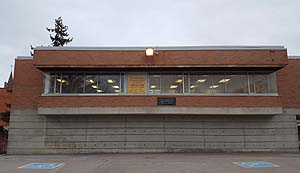by Sofia Coraines
Maria Montessori is an Italian educator, innovator, and physician who built an innovative learning method for young children. Maria was born on August 31, 1870, in Chiaravalle, Italy. Her mother was from a family who prized education while the father was a financial manager for a state corporation. She was a bright student and avid reader - that was not the case with other Italian women of her time. In fact, she had a thirst for education from her young days. That's why she was able to develop an innovative educational program for growing kids that bears her name to date. The first Montessori school was opened in Rome on January 6, 1907 - The Casa Dei Bambini. This read provides information on who really is Maria Montessori.
Maria traveled the world and wrote about her method of education which attracted many devotees to the idea. Today, there are more than 22,000 Montessori schools in more than 110 countries around the world.
Maria Montessori grew up in Rome during her early childhood years. In fact, Rome was a paradise of famous museums, libraries, and great schools which helped Maria achieve the standards that she was able to achieve in her later life. She was very confident and ambitious during her childhood.  In fact, she was not willing to be limited by the traditional expectations of women during her times. That's why she entered an all-boys technical institute at the age of 13 years to prepare for a career in engineering. But within a short time, she changed her mind and decided to study medicine. Maria entered the University of Rome's medical program after that. But she was rejected at the first try. She didn't give up the idea. Instead, she took additional courses in order to prepare herself for the entrance examination to the medical school. She persevered and gained admission with great effort on her part. This opened the door for future women to enter the program. Maria graduated from medical school in 1896 and was amongst the first female physicians in Italy.
In fact, she was not willing to be limited by the traditional expectations of women during her times. That's why she entered an all-boys technical institute at the age of 13 years to prepare for a career in engineering. But within a short time, she changed her mind and decided to study medicine. Maria entered the University of Rome's medical program after that. But she was rejected at the first try. She didn't give up the idea. Instead, she took additional courses in order to prepare herself for the entrance examination to the medical school. She persevered and gained admission with great effort on her part. This opened the door for future women to enter the program. Maria graduated from medical school in 1896 and was amongst the first female physicians in Italy.
Maria's early practice mainly focused on psychiatry. She developed an interest in education theory and attended classes on pedagogy at the same time. This helped her identify the shortcomings in the prevailing educational system that catered to teaching children with certain developmental and intellectual disabilities. She was appointed the co-director of an institute that was established to train special education teachers in 1900. This was an opportunity given to her to improve on the existing teaching methods in the country.
Maria approached this task scientifically. In fact, she was able to carefully observe and experiment with the new methods that she thought worked best for the students. Since many of the children gained unexpected gains from her program, it was proclaimed a success. Maria was handed over a new challenge in 1907, and that was to open a childcare center in a poor inner-city district. That was the first Casa Dei Bambini which helped provide a quality learning center for young children. The children were unruly at first. But they soon settled down to the new environment and became interested in solving puzzles, preparing meals, and participating in math lessons. Maria observed that the children absorbed knowledge from the environment - essentially teaching themselves. This observation coupled with the earlier scientific experiments helped Maria to design a classroom environment with the learning materials to foster the natural desire of the child in learning. The news soon spread throughout Italy. By the year of 1910, Montessori schools were accepted worldwide.
For the rest of her life, Maria persevered with her child-centered approach to education. She lectured, wrote books, articles, and was able to develop a program where teachers were trained in the Montessori method. Due to her great efforts, the Montessori system was accepted worldwide. She also spoke in detail about women's rights. She championed the cause of greater opportunity for women and was recognized as a leading feminist voice in Italy and beyond. Maria spent her final years in Amsterdam and died peacefully on May 6, 1952.
The aforementioned article provides a comprehensive overview of who really is Maria Montessori - the founder of the Montessori method of child education.





